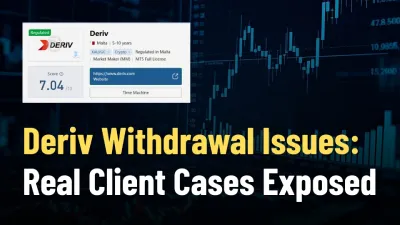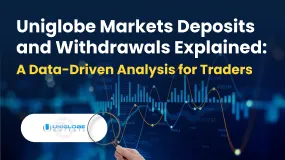简体中文
繁體中文
English
Pусский
日本語
ภาษาไทย
Tiếng Việt
Bahasa Indonesia
Español
हिन्दी
Filippiiniläinen
Français
Deutsch
Português
Türkçe
한국어
العربية
Britain’s cost of living crisis sends sterling to lowest since mid-July
Abstract:Sterling fell to its lowest since mid-July against the dollar on Monday as surging energy costs and a summer of strikes highlighted the UK cost of living crisis and intensified fears for further economic slowdown.

Amid worries around Britains surging inflation and declining economy, sterling recorded its biggest weekly fall against the U.S. dollar since September 2020 on Friday.
By 1105 GMT, it was down 0.3% at $1.1798 after briefly falling to $1.1785, its lowest level since July 14.
Against a weakening euro, sterling held at 84.82 pence, edging 0.1% higher on the day, after falling to a near four-week low against the single currency on Aug. 19.
“The weak UK growth outlook continues to weigh on the pound. News that Ofgem is set to announce on Friday that UK average annual household energy bills are likely to rise to more than 3,500 pounds ($4,128.60) reinforces the headwinds facing consumers,” said Jane Foley, head of FX strategy at Rabobank in London.
Britains cap on domestic energy prices is expected to rise to over 4,200 pounds a year in January, up 230% on the year before, due to soaring wholesale costs and changes in the way the cap is set, analysts said in August.
Strikes over pay at Felixstowe, the UKs largest container port, highlighted issues surrounding the cost of living crisis and threatens to worsen the supply chain issues for UK companies, Foley added.
Summer of strikes
Felixstowe staff became the latest workers to strike in Britain as unions demand higher wages for members.
The squeeze on household incomes has already led to strikes by the likes of rail and bus workers demanding higher pay rises.
Money markets are pricing in another 50 basis point rate rise from the Bank of England next month as the central bank seeks to smother surging inflation at 10.1% in July. [IRPR]
An economist at U.S. bank Citi said on Monday British consumer price inflation is set to peak at 18% – nine times the BoEs target – in early 2023. Benjamin Nabarro raised his forecast once again in the light of the latest jump in energy prices. Consumer price inflation was last above 18% in 1976.
In its August meeting, the BoE raised its benchmark interest rate to 1.75% from 1.25%, the sixth hike since late 2021 and the biggest in 27 years. It warned of a recession by the end of the year that could last until 2024.
Official data also showed Britain borrowed more than expected in July, underscoring the challenge facing the countrys next prime minister over how to provide more support to consumers.
The pound has weakened more than 3% in August against a strengthening dollar, which has been supported by safe-haven flows. The UK currency is one of the worst performers among G10 currencies this year.

Disclaimer:
The views in this article only represent the author's personal views, and do not constitute investment advice on this platform. This platform does not guarantee the accuracy, completeness and timeliness of the information in the article, and will not be liable for any loss caused by the use of or reliance on the information in the article.
Read more

Check Yourself: The Costly Trading Habits Every Trader Must Fix
Are the trading habits you barely notice the very ones quietly destroying your profits, and could a single overlooked mistake be costing you far more than you realise?

Scandinavian Capital Markets Exposed: Traders Cry Foul Play Over Trade Manipulation & Fund Scams
Does Scandinavian Capital Markets stipulate heavy margin requirements to keep you out of positions? Have you been deceived by their price manipulation tactic? Have you lost all your investments as the broker did not have risk management in place? Were you persuaded to bet on too risky and scam-ridden instruments by the broker officials? These are some burning issues traders face here. In this Scandinavian Capital Markets review guide, we have discussed these issues. Read on to explore them.

Deriv Withdrawal Issues: Real Client Cases Exposed
Deriv exposed via client cases of withdrawal issues, 13‑month refund delays, severe slippage, and disabled accounts despite multiple “regulated” licenses.

Uniglobe Markets Deposits and Withdrawals Explained: A Data-Driven Analysis for Traders
For any experienced trader, the integrity of a broker isn't just measured in pips and spreads; it's fundamentally defined by the reliability and transparency of its financial operations. The ability to deposit and, more importantly, withdraw capital seamlessly is the bedrock of trust between a trader and their brokerage. When this process is fraught with delays, ambiguity, or outright failure, it undermines the entire trading relationship. This in-depth analysis focuses on Uniglobe Markets, a broker that has been operational for 5-10 years and presents itself as a world-class trading partner. We will move beyond the marketing claims to scrutinize the realities of its funding mechanisms. By examining available data on Uniglobe Markets deposits and withdrawals, we aim to provide a clear, evidence-based picture for traders evaluating this broker for long-term engagement. Our investigation will be anchored primarily in verified records and user exposure reports to explain the Uniglobe Mar
WikiFX Broker
Latest News
CFTC Polymarket Approval Signals U.S. Relaunch 2025
MH Markets Commission Fees and Spreads Analysis: A Data-Driven Breakdown for Traders
Alpha FX Allegations: Traders Claim Account Blocks, Withdrawal Denials and Security Breaches
How to Become a Profitable Forex Trader in Pakistan in 2025
Gratitude Beyond Borders: WikiFX Thank You This Thanksgiving
KEY TO MARKETS Review: Are Traders Facing Withdrawal Delays, Deposit Issues & Trade Manipulation?
FCA Consumer Warning – FCA Warning List 2025
Zipphy Exposed: No Valid Regulation, Risk Warning
Australia’s Fraud-Intel Network Exposes $60M in Scams
Voices of the Golden Insight Award Jury | Kazuaki Takabatake, CCO of Titan FX
Currency Calculator



